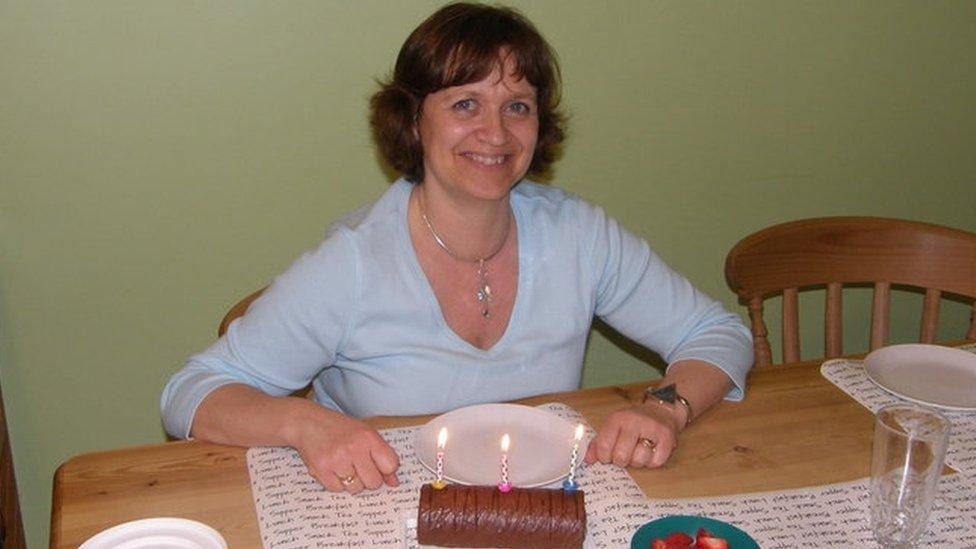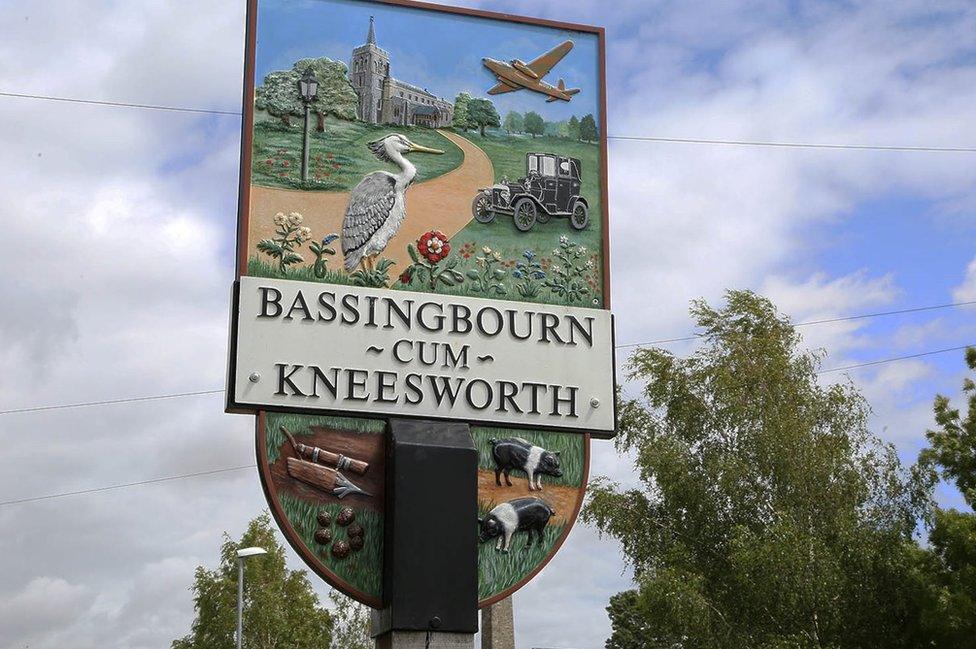Ian Stewart murder trial hears oxygen starvation evidence
- Published

Diane Stewart died at her home in the village of Bassingbourn, Cambridgeshire, in 2010
A woman whose husband is accused of her murder may have suffered a lack of oxygen to her brain for up to an hour before her death, a court heard.
Ian Stewart, 61, denies killing Diane Stewart, 47, at their home in Bassingbourn, Cambridgeshire in 2010.
She was initially believed to have died following an epileptic seizure.
But her death was re-investigated after Stewart was convicted in 2017 of murdering his new partner, children's author Helen Bailey.
The cause of Mrs Stewart's death was officially recorded at the time as Sudden Unexplained Death in Epilepsy (SUDEP).
The current trial at Huntingdon Crown Court heard from consultant neurologist Christopher Derry, who said he estimated the risk of Mrs Stewart having had a fatal epileptic seizure at about one in 100,000.
He said he "cannot exclude it... but it seems she was at very low risk of it occurring".
He noted that she was taking medication for her epilepsy.
The court heard tests on Mrs Stewart's brain tissue, donated for medical research, showed her "breathing had been restricted".

Diane Stewart died at the family home in Bassingbourn, Cambridgeshire
Prof Safa Al-Sarraj, a consultant neuropathologist, was asked to examine preserved parts of Mrs Stewart's brain.
The court heard he observed "changes in the brain... consistent with early ischemia".
He defined ischemia as "damage to the cells due to lack of oxygen and blood supply".
He said he estimated the damage happened over 35 minutes to an hour, but said he was a "bit reluctant" to give figures "as they are all estimates".
Asked by prosecutor Stuart Trimmer, QC, if he would expect to find any evidence of ischemia in "a healthy breathing human", Prof Al-Sarraj replied: "No."
He said ischemia may be found in cases where a person dies after suffering from "restricted" breathing for "30 minutes plus", but said: "You may have look carefully for it."
Amjad Malik QC, defending, said: "SUDEP is possible as the cause of death for Diane Stewart, isn't it?"
Prof Al-Sarraj replied: "I agree. Yes, it's one of the things you have to consider - but it's not the only cause of death you had to consider."
The court also heard from another expert witness, consultant neuropathologist Dr Kieren Allinson, who said in Mrs Stewart's case, there was "no positive evidence of a recent seizure", such as tongue biting.
He agreed that the absence of evidence of a seizure did not mean SUDEP had not occurred.
He said: "A history of recent seizure is a risk factor for SUDEP, but often they haven't had a seizure for many, many years."
The trial continues.

Find BBC News: East of England on Facebook, external, Instagram, external and Twitter, external. If you have a story suggestion email eastofenglandnews@bbc.co.uk, external
Related topics
- Published21 January 2022

- Published20 January 2022

- Published18 January 2022
